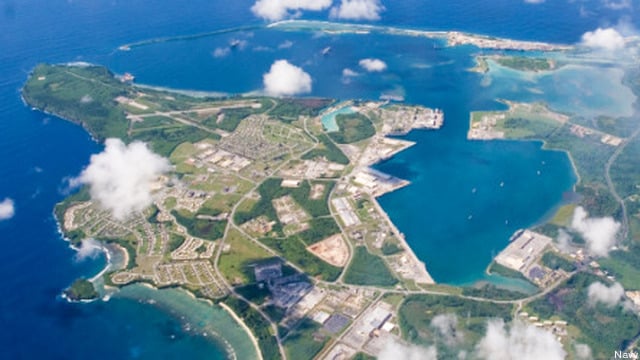Pentagon, Congress Must Break ‘Logjam’ Over Japan, Guam Bases: CSIS
Posted on

CAPITOL HILL: Senate Armed Services Committee leaders released a 100-plus-page report on the administration’s Asia strategy today, including — perhaps inadvertently — four pages of comments from Defense Secretary Leon Panetta.
Congress commissioned the study from the Center for Strategic and International Studies in the authorization bill for fiscal year 2012. SASC chairman Sen. Carl Levin’s office formally received the report on Tuesday, according to a stamp on the posted version of the document. While the Senators are still reviewing it, Levin, ranking member John McCain, and Virginia Democrat Jim Webb released a statement this morning praising CSIS’s work, in particular its call for the administration to better articulate the strategic logic and practical logistics of the “rebalancing to Asia” — the term that has replaced the catchier but controversial “pivot to Asia.”
The Senators’ statement was silent on another part of the study, however: CSIS also challenges Capitol Hill and the administration to compromise on stalled plans to move Marines from Okinawa to Guam.
“These plans are at the center of a logjam between DoD [the Department of Defense], which would like to implement them, and the Congress, which is reluctant to authorize funding absent better details about cost and long-term master plans.” The report argues that decades-long commitments to Japan and Korea have resulted in a Pacific posture that puts too many forces in the north of the region and not enough in the south, where China has become increasingly aggressive towards its maritime neighbors in the South China Sea, especially the Philippines. Shifting forces from Okinawa to Guam would help correct that imbalance, and China, our allies, and neutral parties are all watching for signs of US clarity and resolve: “The current impasse between DoD and the Congress is not cost-free in terms of US strategic influence in the region,” the report warns.
As a way out of that impasse, CSIS would prioritize military construction to build up the bases on Guam and in the Mariana Islands, even at the price of moving fewer Marines off Okinawa. But Panetta took exception to that trade-off in his comments, saying that a force of less than 5,000 Marines on Guam would not be “operationally viable.”
Panetta’s only other objection to the report was a quibble about Korea, dismissing the report’s doubts that the South Korean military will be ready on time to take over from the US-led Combined Forces Command, which is slated to dissolve in 2015.
Subscribe to our newsletter
Promotions, new products and sales. Directly to your inbox.
